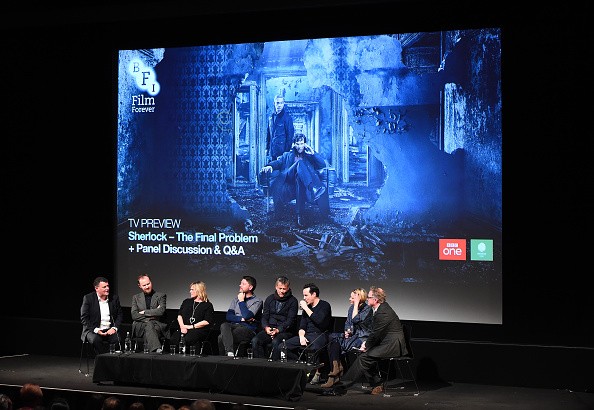Molly Hooper encountered a forced love confession to Sherlock Holmes on BBC One's "Sherlock" in the Season 4 finale that was aired on Jan. 15, Sunday. The final episode titled, "The Final problem," stood out as it polarized fandom.
The scene which left fans, cast and the creators alike with many opinions on it was a last-minute addition to the Sherlock script. Some argued that "Sherlock" Season 4 last scene reduced Molly to a one-dimensional, love-sick sop. Steven Moffat, the creator and Louise Brealey, the actor who plays Molly, have weighed in on the debatable part and their opinions are very different.
According to The Telegraph, Moffat's' female characters is loved by a number of fans while Hooper is seen as one of his complex creations, both in narrative arc and personality. The former is why people are very irked by her scene in "The Final Problem." However, this does not necessitates a reductionist view of Molly's character, despite Molly not progressing past her season one self.
In the series, Molly starts as a Sherlock fangirl with an unrequited affection for the great detective. In season 2, she was more than her love for Sherlock as she stood up to him, gained his respect and became an integral part of Sherlock's plan to fake his death. In Season 3, Molly moves further into the "friendzone," a huge step for both of them in the context of the Sherlock universe.
Mollys' traits in "The Abominable Bride," the Victrian-era Christmas special, is more interesting as she ends up been known as the "man" who runs the morgue and does not accept anything less from anyone. Later on, it is discovered that the plot of "The Abominable Bride" is a fiction made in Sherlock's head.
As a result of this discovery, Molly ends up re-characterizing as a man because he now recognizes her inner steel and not because Sherlock would only respect her as a man. This tends to be more fascinating.
"Sherlock" Season 4 is seen as more of a background character until its last episode: "The Final Problem." This episode centers on the psychopathic look of Eurus, Sherlock's secret sister and her love to understand Sherlock's "emotional context."
In order to achieve this, Eurus is taken through a number of Escape Rooms and is given different ethical conundrum in each. In one room, an empty coffin is seen and Sherlock deduces it is there for Molly Hooper. Eurus reveals to Sherlock that Molly's flat is filled with explosives, and if he cannot convince Molly to say the code phrase "I love you" the timer will run out which will kill Molly.
This is cruel in a way and it makes the scene so brilliant. On the other hand, it is painful for Molly because she says, "it's true." Despite Sherlock success in the challenge, the cost is high and Eurus explains it, though, unnecessary.
The scene in "The Final Problem" is so moving to fans as they know how much Sherlock has grown since then. But it seems that Molly has not changed a bit. In "A Scandal in Belgravia," Molly acts as the unrequited lover, and she is forced into the similar position in "The Final Problem." Many fans are furious over this static characterization of Molly, a woman who seems to exist only to support the emotional growth of the main, male character.
The fact that Molly is still pining for Sherlock arguably makes her feel even more real. In response to fans Twitter criticism, Molly actress Louise Brealey tweeted her own view of the scene.
Loving someone after years is not reductive, retrograde, antifeminist or weak. Fight the patriarchy, not me, and read some fucking Chekhov.
— Louise Brealey (@louisebrealey) January 17, 2017
In a post-finale interview with Entertainment Weekly, Moffat talked to fan concern in a rather casual way. "She gets over it!" He added that her resolution occurs off-screen, and concludes with: "She probably had a drink and went and shagged someone, I dunno. Molly was fine."
Watch "Sherlock: The Final Problem" Season 4 episode 3 finale here:



























